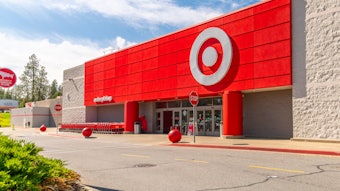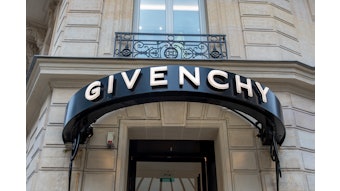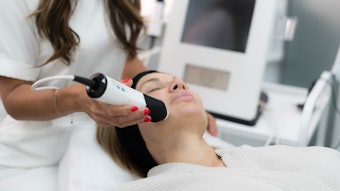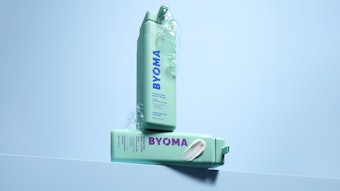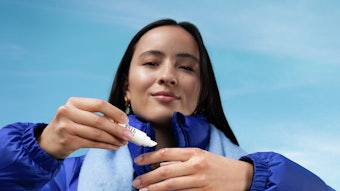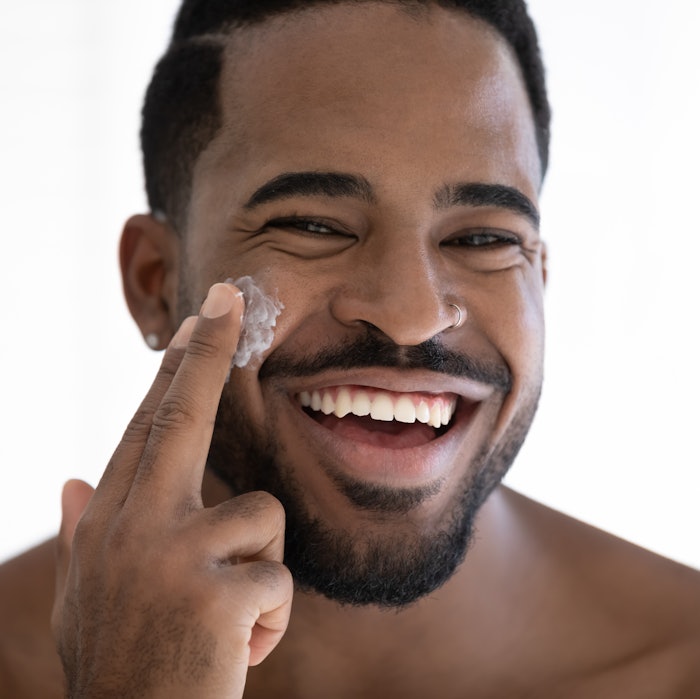
Younger generations are leading the push to normalize advanced skin care practices for men. At the same time, social media is delivering more male-focused education. To tap into the category’s growth opportunities, companies will need to pursue brand building online to reach an increasingly digital male skin care consumer.
Skin Care Leads Grooming Growth
 F1. Skin care is increasingly important to U.S. men
F1. Skin care is increasingly important to U.S. men
While growth drivers may vary across different markets, the United States closely follows Asia’s footsteps in normalizing male usage of beauty and personal care products beyond traditional grooming categories such as shaving and hair care.
U.S. men’s skin care retail value sales accounted for 4% of total U.S. men’s grooming sales in 2023, comparable to its industry share from the previous year.
In comparison to shaving and hair care, which comprised 24% and 11% of U.S. men’s grooming retail value sales, respectively, skin care’s traction in recent years hints at intra-category growth opportunities as U.S. male consumers’ skin care awareness matures.
Male Skin Care Usage Patterns Evolving
 T-1. Skin care's importance to U.S. menEuromonitor
T-1. Skin care's importance to U.S. menEuromonitor
Euromonitor International’s Voice of the Consumer: Beauty Survey (fielded June to July 2023 (n=18764)) shows that 20% of U.S. male consumers voted “skin care is an important priority for me” as a common reason for purchasing skin care products (F-1).
Much like how women have increased self-care and ingredient-led beauty purchasing behaviors post-pandemic, self-care routines are becoming increasingly important, and more complex, to men as well.
F-1. Skin care is increasingly important to U.S. men
What Claims Men Want from Skin Care
 F-2. Men’s most desired skin care functional claimsEuromonitor
F-2. Men’s most desired skin care functional claimsEuromonitor
The landscape of men’s skin care in the U.S. displays a symbiotic relationship.
Brands’ product offerings are diversifying toward more specialized ranges.
This is a result of male consumers being more accepting of product functions that transcend beyond basic functionalities, such as cleansing and moisturizing, to more specialized functions such as sun protection and texture improvement (F-2).
How Social Media & Digitalization is Reshaping Men’s Skin Care
 F-3. Brand or shopping-related activities on TikTok: find out information about a brand, company, or products/services 2020-2023Euromonitor
F-3. Brand or shopping-related activities on TikTok: find out information about a brand, company, or products/services 2020-2023Euromonitor
This was a sharp increase from the 4.2% response in pre-pandemic 2019—especially among millennials (Euromonitor International’s Voice of the Consumer: Beauty Survey, fielded June to July 2023).
No doubt, digital platforms such as TikTok and influencer communities have made a huge impact on how male consumers are educated.
Many male consumers, especially those who are younger, are being introduced to beauty and personal care through online channels first, particularly given the rise of male beauty GRWM (“get ready with me”) influencers such as Edward Zo (@edwardzo) and male dermatologists such as Muneeb Shah, D.O. (@dermdoctor).
These influencers expand ingredient awareness, product education and encourage elevated daily skin care habits.
Euromonitor International’s Voice of the Consumer: Digital Survey (fielded March to April 2023) shows that 50% of Gen Z male respondents found information about a brand, company, or products through TikTok in 2023—a steep increase from 36% in 2022 (F-3).
Celebrity Partnerships & Online Marketing in Male Skin Care
Looking beyond traditional influencers, brands are also finding success with male celebrity partnerships.
 F-4. Factors that influence latest skin care purchase: brand or retailer advertising on social media 2019-2023Euromonitor
F-4. Factors that influence latest skin care purchase: brand or retailer advertising on social media 2019-2023Euromonitor
Social media marketing for men’s skin care (F-4) that employs partner “skinfluencers” is primarily driven by dermocosmetics brands such as Neutrogena and CeraVe, where hashtags like #neutrogenapartner and #ceravepartner have reached almost 6,000 and 7,000 posts, respectively.
Dermo-positioned brands usually provide clinical expertise on specialized skin care systems for treating specific issue areas due to their research-based development of advanced care products.
Because dermo brands are leading the influencer-brand collaboration style for skin care, they are raising consumer awareness of advanced care education and solutions, especially common issues such as fine line and wrinkle reduction/prevention, sun protection, and dry/aged skin symptoms.
Celebrity-backed Male Brands Boost Targeted Skin Care
While Gen Z may have championed self-care for men, the rise of male celebrity grooming brands has further encouraged the normalization of skin care offerings across diverse care-based needs and demographics.
 F-5. Desired skin care features among male consumers 2020-2023Euromonitor
F-5. Desired skin care features among male consumers 2020-2023Euromonitor
Notable launches in advanced and targeted care in recent years include Le Domaine from Brad Pitt, a luxury-positioned anti-ageing line; Loved01 from John Legend, a melanin-rich skin care brand that retails at less than $20 to ensure accessibility; and, as of early 2024, Papatui by Dwayne “The Rock” Johnson, a line of men's face care, body care, hair care and tattoo care products that focuses on clean ingredients and affordability (retails at less than $10).
It is also important to note that both John Legend and Brad Pitt's brands are marketed as gender-neutral, so while their brands are not specifically “for men,” one could assume that they would draw in a strong male audience base.
As self-care through skin care becomes increasingly mainstream for men, it will be fascinating to see if male celebrity skin care brands can replicate the success of female celebrity counterparts and analyze the depth of impact of these new ventures in men's skin care and how men approach these products.
Top Trending Male Skin Care Ingredients
Whether they are anti-ageing, anti-acne or melanin-specific care, skin care launches for male consumers are aligning with an ingredient-focused lens.
An increasing number of premium men’s skin care products boast higher-quality ingredient combinations such as peptides, alpha hydroxy acids, retinol and hyaluronic acid for targeted treatment in anti-acne management, anti-ageing and skin barrier restoration.
Top Male Skin Care Concerns
 F-6. Top five skin concerns: U.S. males by generation, 2023Euromonitor
F-6. Top five skin concerns: U.S. males by generation, 2023Euromonitor
Prospective hotspots could seek to blend solutions-focused and preventative treatment into one, depending on consumer preferences across product categories.
Consumers could demand both solutions and prevention in treating and/or reducing blackheads and wrinkles/fine lines, as these issue areas are top concerns for men across generations (F-6).
Top 2024 Men’s Skin Care Trends
Although skin care behaviors vary among consumers from different generations, brand presence in social media and the availability of premium formulations for all skin types play a major role in male consumer choices (F-7).
 F-7. Men’s skin care product usage dataEuromonitor
F-7. Men’s skin care product usage dataEuromonitor
When asked about the impact of positive technology experiences on customer experience and loyalty, 31% of U.S. male consumers said that technology increased brand confidence in 2023, versus 24.6% in 2020 (Euromonitor International’s Voice of the Consumer: Digital Survey, fielded March to April 2023, n=20079).
Euromonitor International anticipates men’s grooming brands will expand portfolio offerings by providing solutions that address top-ranked male skin concerns and are suitable across generations.
Offering product ranges that have targeted purposes will not only resonate with consumers across demographics, but with the assistance of digitalized marketable platforms, will also increase brands’ growth potential before the movement becomes mainstream.
As men tap more into products with targeted treatment, we can expect advanced care segments to premiumize ingredients. While good skin care does not need to be gendered—only effective—brands and consumers are experiencing transformations in how beauty and skin care philosophies for men are being promoted.
